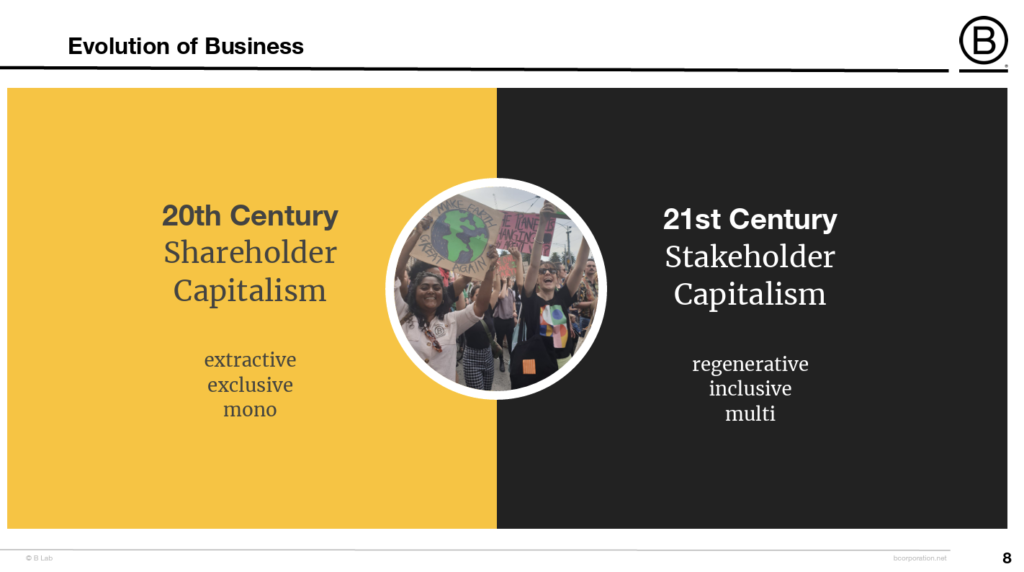Creating opportunities for purpose-driven enterprises, and why educating these organizations offers the most direct route to take advantage of Artificial Intelligence (AI).
One incremental improvement increased humanity’s information production rate by 90 times. While knowledge workers initially faced uncertainty, a revolution in human capabilities, wisdom, compassion, and justice followed.

The year was 1440, and Johannes Gutenberg had just invented movable type. The printing press subsequently took off, democratizing knowledge, spreading the best ideas of the time from the Italian Renaissance, and igniting the Scientific Revolution. However, humanity’s gains in the 15th century would not go off without a hitch. Inquisitions, witch-hunting manuals, and propaganda-fueled wars also followed.
Today, AI is taking off, making intelligence cheaper and more accessible than ever. Could we be looking at a similar turning point in history? Thanks in part to Gutenberg, we are literate and know some history, so we recognize there are choices in using powerful human mind-amplifying technology. Whether we apply Artificial Intelligence’s newfound power to serve human values responsibly is a choice we face in the next few years.
Emerging Stakeholder Economics
What choices win? Then, as now, we must follow the money.
Printing didn’t just make books cheaper. It enabled new forms of value creation, creating a self-reinforcing cycle of intellectual enrichment. More accessible education led to more skilled workers and innovators, scientific advancements, and civic engagement, which led to new industries and strengthened governance, which led to more stable economic systems that could better meet society’s needs, from healthcare to engineering to trade. Printing allowed the economy to grow and reach needs it previously couldn’t.
We’re at a similar crossroads today in that our 21st-century technologies have the potential not just to make current processes more efficient but also to open new economic vistas onto previously overlooked needs. As B Lab envisions it, we are gradually shifting from shareholder capitalism to stakeholder capitalism.

Generally, it has not been humanly possible for business administrators to support B-Lab’s expansive visions. But when intelligence is 90 times cheaper, that’s no longer true. AI’s ability to process vast amounts of information and supercharge creative problem-solving is poised to accelerate this transition to include traditional economic externalities and more human values than greed in measuring value. It is making stakeholder capitalism easier.
That means an utterly massive untapped market of human values and needs has suddenly become accessible with AI. As of early 2025, we are already close to living in a world where someone can have an idea that has value to someone, prompt an AI system to set it up, and the system takes it from there effectively.

Solving a problem will not be sufficient for a sustainable competitive advantage in such a world. With AI making problem-solving instant and cheap, businesses can no longer compete just by providing solutions—but machines can. The real advantage lies in understanding which problems truly matter and solving them in ways that connect with human needs. The purpose of the economy can evolve from more efficiently providing solutions to developing human well-being and society.
Like the printing press, AI enables a new form of value creation that allows the economy to grow and meet previously unreachable needs.
Why Purpose-Driven Orgs Lead This
Human needs that have been bypassed and ignored by the economic system for centuries haven’t been forgotten by all. Purpose-driven enterprises have acted as economic early adopters who have chosen to serve the better angels of our nature: B Corps, social enterprises, and healthcare and education institutions. They have positioned themselves uniquely in this moment of abundant cheap intelligence to create massive value.

Take Legacy Health‘s mission: “Good health for our people, our patients, our communities, and our world. Above all, we will do the right thing.” While working there, I felt empowered to act to do the right thing for good health, even if it wasn’t cost-effective in the short term. The onus wasn’t on me to prioritize profitability over health. The real value of the mission was clear, front and center.
Enterprises that can place their purpose over profit are already on the road to the stakeholder-focused vision B Lab expresses. They are the best positioned to apply AI’s capabilities to advancing their missions. That’s why we’re focusing AlignIQ on purpose-driven enterprises. They are underrepresented in business, but they may be ahead of their time – and AI is making their time come faster.
Why Education is Our Service
Opportunities with AI for substantial positive impacts on stakeholders will be primarily from efforts to increase productivity and create human value, not primarily from the automation of human activity. When we focus on enhancing human capabilities rather than replacing them, we open up new possibilities for creating value, and AI allows broader measures of success to recognize the value.

AI upskilling, education, and literacy aren’t just ways to adapt; they are part of the foundation of competitive advantage in an AI-powered stakeholder economy. AlignIQ is here to help purpose-driven organizations harness AI thoughtfully and strategically, ensuring it amplifies mission-driven impact rather than just optimizing for efficiency.
As a Math and Statistics TA, I saw the lightbulb turn on when students “got” the point. Our Math Education Seminar opened my eyes to a beautiful array of approaches to enriching technical learning. Making these experiences accessible, rewarding, and fun depends on the amount of pedagogical knowledge, care, and design that goes into the learning experience.
At AlignIQ, educational excellence is one of our core values, and we ground this in pedagogical training so we can maximize the stakeholder value of our workshops. Folks are excited to have lightbulb moments with AI, and thoughtful educational design helps people find the light switch to the practices that will best serve them.
The love of learning is human. And what we need more of right now, in an age of AI, is genuine intelligence from humanity. AI amplifies human intentions, so aligning it with purpose-driven goals is needed as much as improving efficiency metrics. Therefore, our education philosophy is to illuminate human potential and where it meets AI’s capabilities.

Putting it All Together
Like just before the start of the spread of ideas of the Renaissance, society stands on the precipice of a positive transformation. AI is reshaping the competitive landscape faster than any technology before it. Purpose-driven organizations must take the lead—now. Let’s make AI work to advance what matters. Connect with us at hello@aligniq.ai.
To see how AlignIQ helps organizations align technology with their missions, read Aligning AI With Purpose: Our Do’s & Don’ts.
For an exploration of how AI is reshaping human learning, check out Will AI Flatten or Elevate Human Learning?.
Curious how AI safety and pedagogy intersect? You’ll find more in AI Made Me Question Everything, So I Built a Course on AI Safety — or reach out through AlignIQ’s contact page to collaborate on your organization’s next learning initiative.


Leave a Reply